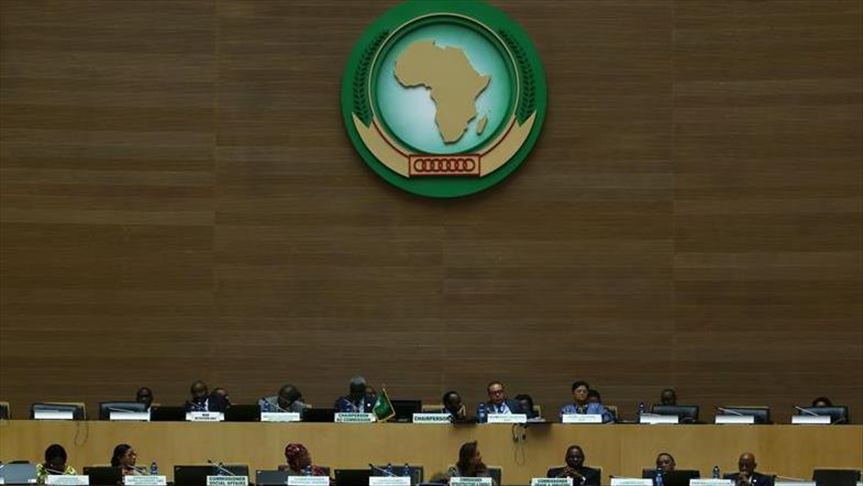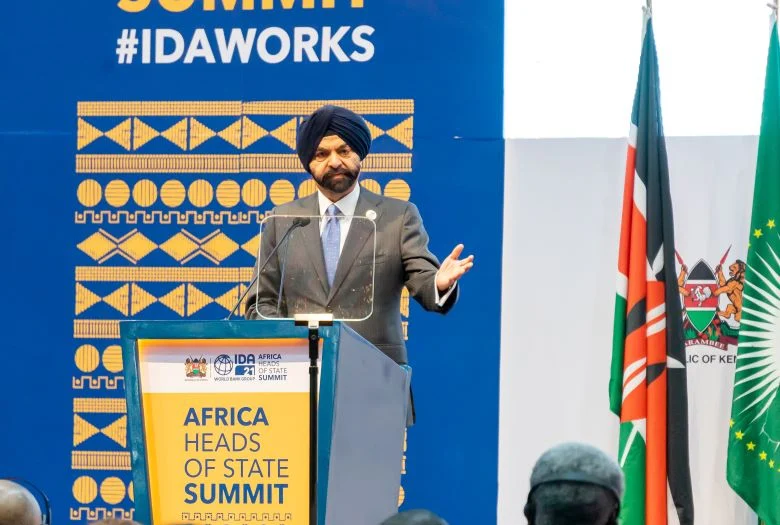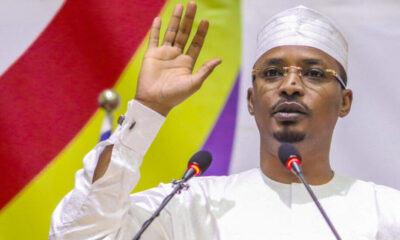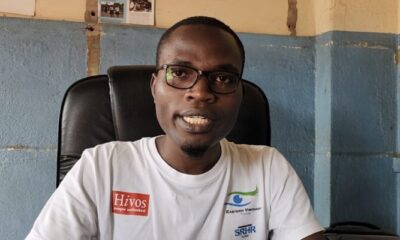“When the going gets tough, the tough gets going.”
Right now, nobody on earth has a tougher assignment than you. You have my sympathies. Because you lead a team of Deputy Governors, all new to the Central Bank of Nigeria, CBN, embarking on the nearest thing to “Mission Impossible”, I want to start by congratulating you on your appointment as Governor of CBN. The occupant of that seat is the Governor of Governors. None of the thirty-six elected Governors can impact our lives as the CBN Governor. In fact, once you are sworn in, you will become the second most powerful man in Nigeria — after the President. It is an awesome responsibility which will test your competence and character every single minute.
So, let me start by assuring you of support in the discharge of your duties — as long as you operate within the confines of your legal responsibilities. Despite the fact that you are Yoruba and from my Popo Aguda area of Lagos Island, I must inform you that it is the policy here to be objective and not allow ethnic sentiments to get in the way of the truth. You must agree that Nigeria’s interests demands nothing else. Incidentally, you are the second CBN Governor born and raised in our Lagos Island. Late Pa Ola Vincent, scion of the Vincent family of No.8, Vincent Street, Lagos Island, was CBN Governor from 1977 to 1982. I was not in the media at the time. From information available to me, Pa Vincent served without blemish. I wish you the same — whether one or two terms.
So, rest assured that you will receive support when it is the right thing to do irrespective of the number of those rising against you. You will also receive lessons in history of the CBN, and advice; whether you ask for it or not. That is one of the responsibilities of those privileged to write columns; dispensing views. As a matter of fact, you are about to receive a few now, which it will profit you to remember.
Short history of CBN.
“When an old man dies, you lose a library.” – Anonymous.
Because you are being thrown into the deep-end of financial crisis engulfing the CBN, you will not have the time to read the history of the bank. Let me summarise for you the crucial ones that must be remembered.
As you will soon get to know, I have been on this page since 1987 and have observed five CBN Governors at close quarters. Abdulkadir Ahmed, 1982-1993, was the longest serving Governor, eleven years in all. He taught me a lesson about how powerful CBN Governors can be. He ordered me arrested and detained for more than twelve hours on account of one article written, titled ”CBN: Confused Bank of Nigeria”. I warned the Governor that a dual-exchange rate system would defeat the aims and objectives of the Structural Adjustment Programme, SAP, launched by the Babangida administration. I also opposed the weekly Dutch auction of foreign exchange to banks. Ahmed was furious. The affair ended peacefully by Divine intervention. He lived long enough to see SAP become a major problem for Ex-President Babangida, as all the banks engaged in round-tripping and steadily pushed up the exchange rate.
Dr. Paul Ogwuma, 1993-1999, and I actually worked together without meeting face to face. My article titled FUNNY MONEY, not only exposed how most of the banks were falsifying their Annual Reports and Accounts, it led to the promulgation of the Failed Banks (Recovery of Debts) and Financial Malpractices Act of 1994. I had pointed out in the article that virtually all banks, at the time were falsifying their accounts. It made no sense that banks would be declaring record profits and paying huge dividends to shareholders in an economy that was growing at two per cent and there was massive unemployment. Nineteen banks were specifically named among those I suspected distressed after analysing their returns for three years.
In the end, 17 of the banks went under. Two were saved by forced merger by the military government. I was warning the Abacha government despite two trips to detention under the regime. The bank crisis which started in 1994 resulted in the crash of the Nigerian Stock Exchange, NGX, two years after.
Chief J O Sanusi, 1999-2004, was the last CBN Governor to start and end his five years tenure without a major incident. Why he was denied a second term by Obasanjo remains a mystery. He was, however, the second Yoruba Governor of CBN to be appointed.
Professor Chukwumah Soludo, 2004 to 2009, was the first of three highly controversial governors we have had in a row. They include Malam Sanusi Lamido Sanusi, 2009-2014 and Godwin Emefiele, 2014-2023. Before going forward, let me give you the first strict warning. Avoid radical changes and don’t tamper with the currency. Soludo was denied a second term in office because Banking Consolidation collapsed. From 25 banks approved in 2006, by the CBN, less than 12 were in good shape by 2009. More importantly, Soludo had to go because he had proposed re-decimalisation of our currency as a short-cut to taming rising exchange rates and inflation. The measure would have meant that our highest currency would have been N100; billionaires would have become ordinary millionaires; and millionaires mere “thousandnaires”. He had even minted coins for ten and five naira to replace bills.
He announced the reforms to a packed hall in the CBN Auditorium; and received polite applause. I was there; and that evening attended a meeting of highly influential people in Kano — where a call was made to Yar’Adua by one of them. “Soludo must go”; said the billionaire to the President. Thereafter, Soludo was only marking time.
“People with vision usually do more harm than good.”- —John Major, British Prime Minister, 1993.
Unfortunately, Soludo left one massive problem which has refused to go away. The Assets Management Company of Nigeria, AMCON, was the offspring of a Banking Consolidation failure. Soludo convinced Obasanjo that instead of 73 mostly poorly capitalised banks, what Nigeria needed were a few well-capitalised banks – and the sooner the better. We agreed with him on the need for bigger banks; but disagreed on the speed. Speed kills as Soludo would find out later. By 2008, virtually all the approved banks were hanging on the ropes. The global banking crisis of 2008, from which Soludo said Nigeria was insulated, and we disagreed, had caught the country unprepared. Banks, self-advertised as sound, award-winning chief executive officers, tumbled like castles built by children on the sea shore. Some ran away; some were jailed; all left a mountain of toxic loans — N6 trillion high — which the CBN had to acquire to avert total collapse of a sector Soludo promised to strengthen. Nigerians who invested in bank shares, when consolidation started, lost trillions to Soludo’s vision.
CBN has a bundle on its hands. That calls for the third lesson. Be careful with visionary changes; they are counter-productive more often than not. Soludo’s admirers stop the history where he launched banking consolidation. They are too ashamed to recall that First Bank shares sold for N75 at one time and Intercontinental went for N56. Where is Intercontinental now?
Sanusi and Emefiele teach different lessons
Because Sanusi Lamido Sanusi and Godwin Emefiele teach different lessons about the relationship between the FG and CBN, I will stop now.


 VenturesNow1 day ago
VenturesNow1 day ago
 Tech1 day ago
Tech1 day ago
 Politics1 day ago
Politics1 day ago
 Politics12 hours ago
Politics12 hours ago























